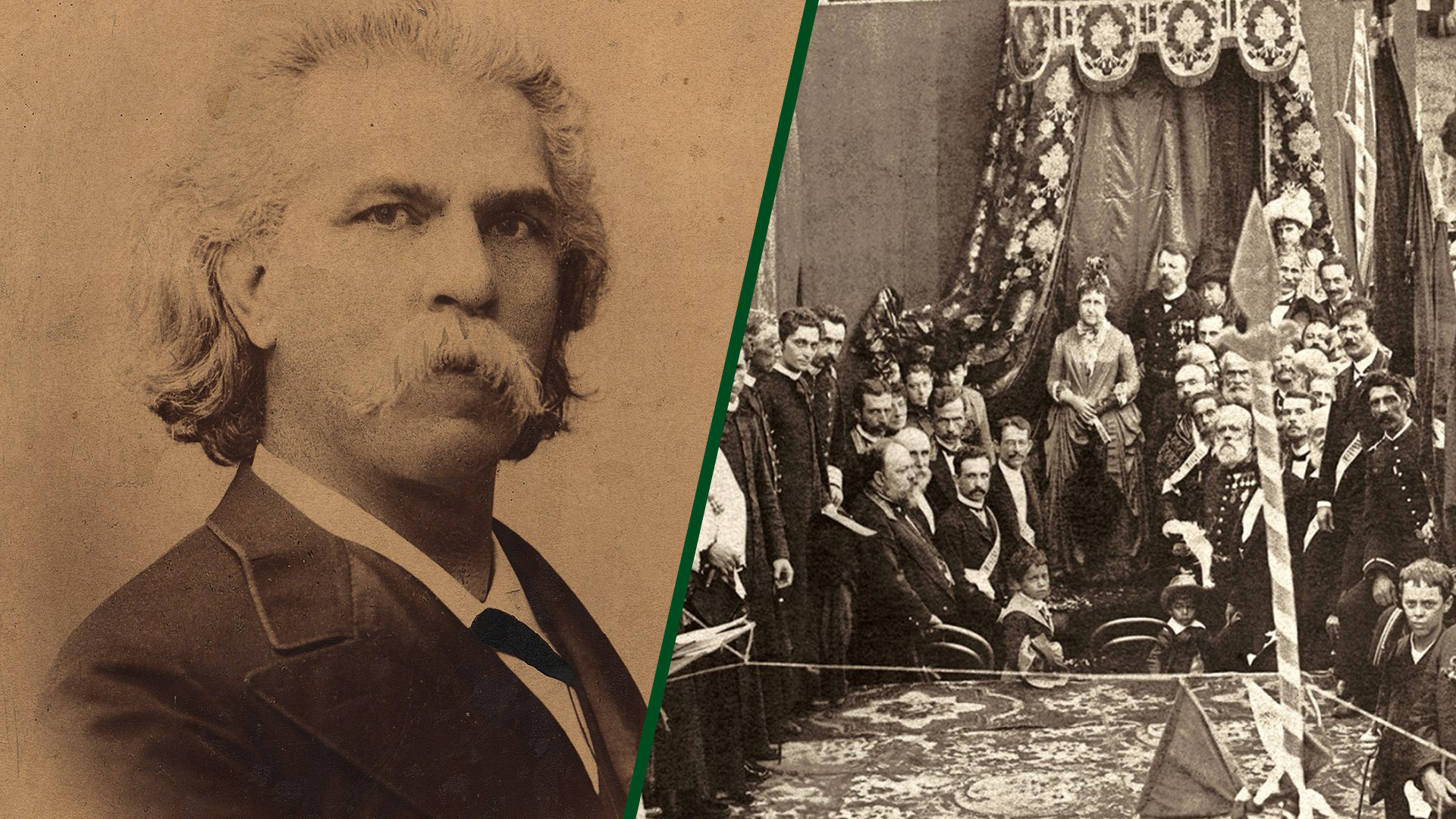Antônio Carlos Gomes, born in Campinas and considered the greatest composer of operas in the Americas, was a fervent admirer of Verdi. Some say that at the age of eighteen, he composed a march based on themes from Il Trovatore. With the support of Emperor Dom Pedro II, Carlos Gomes received a scholarship to further his studies in Europe. The Emperor would have preferred Carlos Gomes to go to Germany, where the great Richard Wagner was prominent, but the Empress, Dona Teresa Cristina, Neapolitan herself, suggested Italy.

André Rebouças, a friend of Carlos Gomes, wrote that the composer once revealed: “If they gave me the choice now between going to heaven and going to Italy, I would prefer to go to Italy,” confirming the Empress’s desire. Rebouças also recounted Carlos Gomes’s impressions of the Brazilian forests: “He especially appreciated the dawn in the forest; the unique chorus of a thousand birds had the greatest charm for him.” In these words, Rebouças foreshadowed the composition of the orchestral interlude in the opera “O Escravo,” titled “Alvorada” (Dawn).
“Lo Schiavo” was written at the same time that Verdi was completing the composition of “Otello.” Verdi, who was usually reserved in judging his contemporaries, had prophesied after hearing “Il Guarany”: “This young man begins where I end!” Verdi found much of himself in that work, and Gomes acknowledged the weight of that immeasurable expression of sympathy: “Look,” he confessed to a friend, “what pains me is betraying Verdi’s word, as I could never be his successor. Verdi’s genius! After ‘Otello,’ I cannot compare… I am frightened!”
In fact, the success achieved with “Il Guarany” would never be repeated, although he wrote works of superior quality, such as “Lo Schiavo,” which made Carlos Gomes the musical representative of the end of the era of slavery in Brazil. The “Abolition Opera,” as it became known at the time of its Rio de Janeiro premiere in 1889, was dedicated to Princess Isabel, “the Redeemer,” who exchanged the throne for the liberation of a people.
Reference: Filarmônica – O ESCRAVO: COME SERENAMENTE. Brazil, s.d. Site: www.filarmonica.art.br. Available in: O Escravo: Come serenamente | Orquestra Filarmônica de Minas Gerais (filarmonica.art.br). Accessed on: September 23, 2023.
O Globo – Teatro Municipal celebra os 180 anos de Carlos Gomes com “Lo Schiavo”. Brazil, October 21, 2016. Site: oglobo.globo.com. Available in: Teatro Municipal celebra os 180 anos de Carlos Gomes com ‘Lo schiavo’ – Jornal O Globo. Accessed on: September 23, 2023.

Matheus Araújo
Matheus Araújo is the founder and editor of Brazilian History. Born in Rio de Janeiro and holding a degree in Advertising and Marketing, his passion for history led him to enroll at the Federal University of the State of Rio de Janeiro, where he is currently pursuing a degree in History Education.
